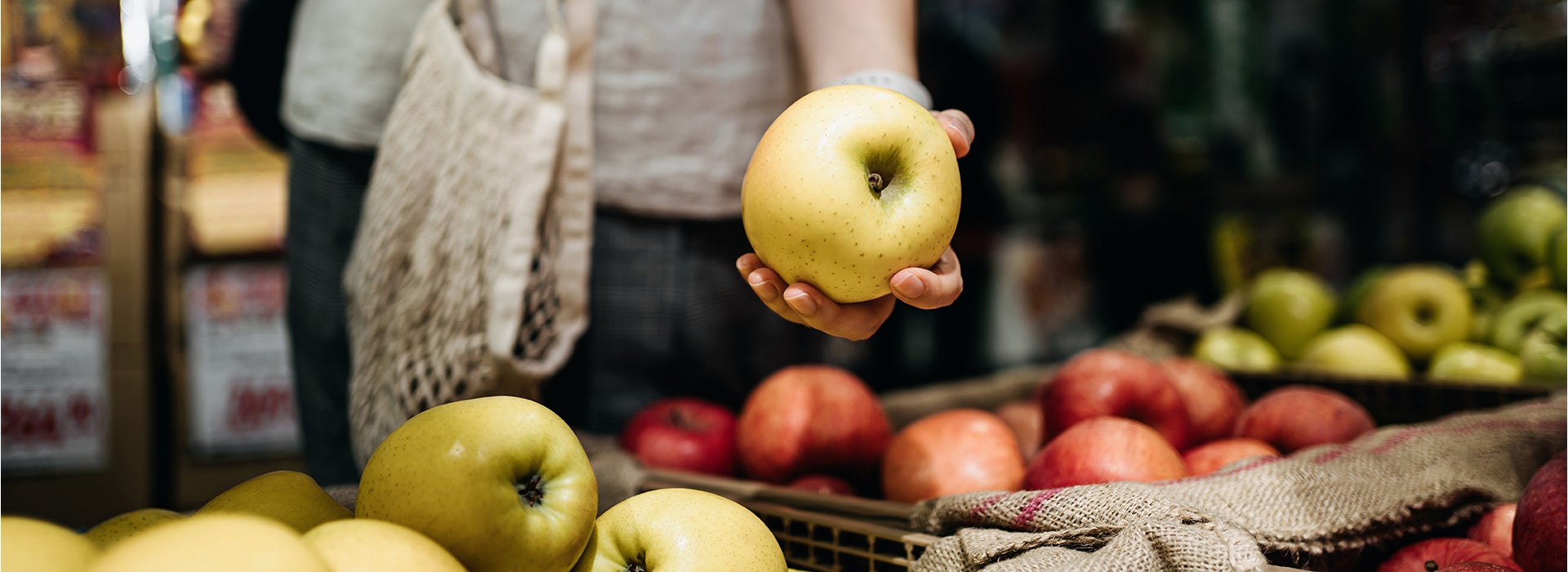Do you have doubts whether your supermarket is making green choices, such as promoting sustainable food or discouraging food waste? According to Meike Morren, a researcher on sustainable consumer behavior at VU Amsterdam, every Dutch supermarket will soon have a sustainability score. "Once you offer a ranking, supermarkets will be motivated to avoid being at the bottom."
Meike Morren's collaborative project with Yue Dou, a researcher at the University of Twente, focuses on reducing single-use plastic and developing sustainability scores for supermarkets. Their research consists of several phases: first, they visited various supermarkets to record how these supermarkets use plastic for their fruits and vegetables. Then, Morren and Dou mapped out consumer experiences regarding plastic use. The final step is assigning a sustainability score to each supermarket in Enschede and Amsterdam and then providing feedback to consumers. "This helps consumers choose a supermarket based on how they handle their packaging material. Consumers mainly choose a supermarket based on price, quality, and proximity, but sustainability is becoming an increasingly important factor in their decision. Hopefully, these sustainability scores contribute to a world where people become more aware of plastic use and see opportunities to reduce it," says Meike Morren.
Paper vs. plastic
When given the choice, consumers prefer paper over plastic due to environmental concerns, as observed by Morren in an intervention at Spar and Coop supermarkets on two campuses, where plastic bags were replaced with paper bags. "Consumers consider paper bags to be more environmentally friendly than plastic, but the downside is that paper bags cannot be reused and are unsuitable for recycling," says Rik van der Ploeg, project leader for the circular economy at Natuur & Milieu. "Plastic is actually very suitable for reuse and is more hygienic than paper, provided it is used properly. Plastic does not biodegrade, so it should be separated and ensured that it does not end up in nature. But that's where the problem lies: there are always people who leave plastic in nature." According to Van der Ploeg, this does not mean that choosing packaged vegetables is the better option. "The premise is often that you have to choose between plastic and paper, when in fact you should reverse it: can it also be unpackaged? If you are sure that you will eat the vegetables within a few days, then unpackaged is better."
Food waste
Foil and other packaging materials help to prevent vegetables from spoiling quickly, but there is no visibility into how consumers store their fruits and vegetables at home. "If you buy a bag of apples, there is a chance that you will have to throw away a lot of old apples because there are too many. On the other hand, when you buy a cucumber wrapped in plastic, you might think it will last a long time, but then it disappears in the fridge and you forget about it. This can also contribute to food waste. That's why I think it's important to educate consumers well. How can you best store fruits and vegetables to make them last longer? Our first pilot study shows that many people don't know," says Morren.
Supermarkets are responsible
In addition to reducing your ecological footprint by making the right choices as a consumer, supermarkets have a significant responsibility, according to Van der Ploeg. "Supermarkets could offer more sustainable alternatives for food products and strive for sustainable packaging materials for their products. However, this is also a matter of priority: supermarkets do not always prioritize sustainable packaging use, even though they should," he says. However, this is only one side of the story: supermarkets, in turn, depend on earlier links in the production chain. "We have no control over what happens to the product before it is delivered to the supermarket. Does the supermarket choose a supplier that generates relatively little plastic waste or makes packaging with less plastic? Recently, many supermarkets have switched to using bags instead of trays to package meat. With our research, we mainly focus on the impact of these choices on the consumer," Morren explains.
France as an example
Morren's research not only helps consumers change their behavior but also encourages current initiatives by supermarket chains to reduce plastic use throughout the food chain. "The sustainability scores show to what extent consumers are confronted with plastic in different supermarkets. Other European countries have different regulations for this. For example, in France, it has been forbidden since last year to package most fruits and vegetables in plastic. In Carrefour, the major supermarket chain in France, fruits and vegetables are now sold in large boxes, also known as bulk sales. This usually costs less and requires less packaging material. Such a regulation does not exist in the Netherlands, but I hope that this project can have a positive impact on how we use plastic at a national level. In the future, we would like to investigate how culture plays a role in these differences."



